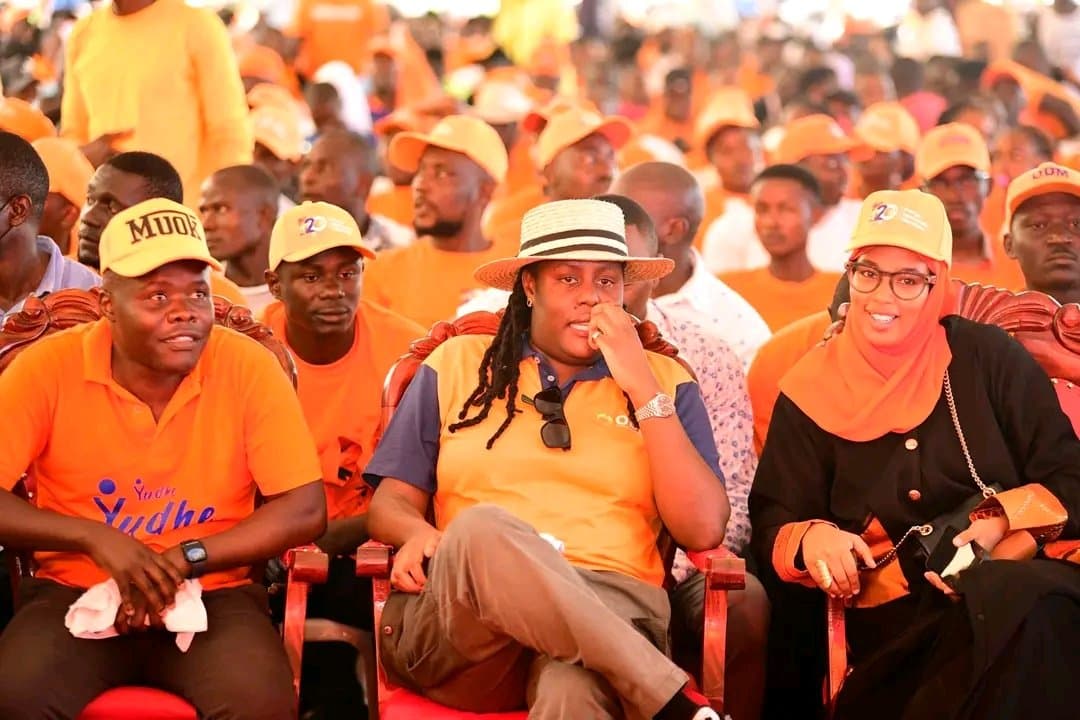We're loading the full news article for you. This includes the article content, images, author information, and related articles.
A constitutionally mandated National Delegates Conference to elect a new leader threatens to deepen fissures within the Orange Democratic Movement, forcing a perilous choice between democratic legitimacy and party unity in the post-Raila Odinga era.

The Orange Democratic Movement (ODM) is confronting a profound internal crisis as escalating demands for a National Delegates Conference (NDC) expose deep-seated divisions following the recent death of its iconic leader, Raila Odinga. The call for the conference, a constitutional requirement to elect a new party leader, has become a double-edged sword, pitting a faction demanding democratic process against an establishment wary of a divisive leadership contest that could fracture Kenya's largest opposition party.
At the heart of the turmoil is the legitimacy of the party's new leadership. Following Mr. Odinga's passing on October 15, 2025, his elder brother, Dr. Oburu Oginga, was installed as the new party leader. However, his confirmation on Thursday, October 13, 2025, was by the party's National Governing Council (NGC), not the National Delegates Conference, which is the supreme organ mandated to elect the Party Leader.
A growing camp within the party, including Mr. Odinga's daughter and EALA MP Winnie Odinga, Embakasi East MP Babu Owino, and Saboti MP Caleb Amisi, is vocally demanding that an NDC be convened immediately. They cite Article 6.2 of the ODM constitution, which explicitly requires a Special Session of the National Delegates Conference to elect a new leader in the event of the incumbent's death. On Tuesday, November 18, 2025, a group of party life members escalated the pressure by petitioning the National Elections Board, demanding Dr. Oginga's resignation and an urgent NDC, citing violations of the party's constitution.
This faction argues the issue transcends mere procedure. Ms. Odinga has publicly questioned the capacity of the current leadership to manage the party's complex “broad-based government” relationship with President William Ruto's administration, a pact previously steered solely by her father. She insists that only a delegates' conference has the mandate to decide who should manage this relationship and chart the party's future political direction.
Conversely, the party's establishment appears to be treading cautiously, acknowledging the need for an NDC but resisting the pressure for an immediate convention. Party officials have cited the logistical and financial challenges of organizing such a large-scale event, suggesting a more measured approach is necessary. Deputy Party Leader Godfrey Osotsi stated that while an NDC is inevitable, it cannot be convened on a whim due to pressure from a few individuals and requires elaborate planning.
Underlying this official stance are deep-seated fears that a premature conference could devolve into a bitter and public leadership battle. The party had already postponed a planned NDC from October 2025 to early 2026 to avoid acrimony and potential defections ahead of its 20th-anniversary celebrations held in Mombasa from November 14 to 16, 2025. The concern is that an open contest could expose the widening cracks within ODM, which has seen leaders publicly differ on the party's direction since Mr. Odinga's death. President William Ruto himself weighed in during the anniversary celebrations on Saturday, November 15, urging the party's leadership to preserve its unity.
The dilemma facing ODM has significant implications for Kenyan politics. As the dominant opposition force for two decades, its stability is a cornerstone of the national political landscape. A fractured ODM would not only weaken the opposition but could also trigger a significant realignment of political alliances ahead of the 2027 General Election.
The party is therefore on the horns of a dilemma. Convening the NDC would uphold its constitution, answer the calls for internal democracy, and bestow legitimacy upon its next leader. However, it risks a volatile contest that could irrevocably split the party. Delaying it, on the other hand, allows the current leadership to consolidate its position but fuels accusations of illegitimacy and deepens the resentment of a vocal, reform-minded faction, potentially leading to a slower but equally certain disintegration. The path ODM chooses in the coming weeks will be a defining moment, determining not only its own survival but also the shape of Kenya's political future.
Keep the conversation in one place—threads here stay linked to the story and in the forums.
Sign in to start a discussion
Start a conversation about this story and keep it linked here.
Other hot threads
E-sports and Gaming Community in Kenya
Active 9 months ago
The Role of Technology in Modern Agriculture (AgriTech)
Active 9 months ago
Popular Recreational Activities Across Counties
Active 9 months ago
Investing in Youth Sports Development Programs
Active 9 months ago
Key figures and persons of interest featured in this article